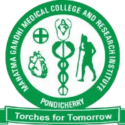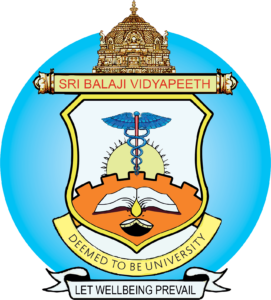

















Teaching Learning And Assessment
Teaching Learning Methods
The following pedagogy methods are being employed for effective student engagement & curricular delivery at the SBV Institutions.
Didactic lectures
Formal lectures would be for only one-third of the total teaching hours. Lecture topics would be published in the SIS-Garuda, well in advance to enable the students to prepare and actively participate and interact during the lecture sessions. Teaching will be predominantly in small groups & student-centric.
Practical/ Demonstration classes
Practical /Demonstration classes are conducted appropriately to cover certain specific areas of the concerned discipline. The students are divided into small batches and hands-on training is provided.
Clinical Classes
Clinical training would be patient-based and will be held as bedside clinics. The Purpose of clinical classes would be to train students in core clinical skills of diagnosis & devising management plans for individual patients. The focus would on a patient-centric approach.
Skills Training Sessions
The students will undergo ‘hands-on’ training in Procedural & Patient Care Skills through the process of Active training under supervision. The state of Medical Simulation Center at MGMCRI aids in the transfer of these skills. Students are also trained in life support skills from year 1. All SBV students are trained in Basic & Advanced Life Support by the completion of the internship.
Small group teaching / Tutorials
Small group teaching/tutorials would be organized by the faculty members for a small group of students at a time. These sessions would enable extensive interaction between the teacher and the taught and will be based on clinically oriented problems.
Student seminars
This facet of teaching methodology definitely motivates students to learn the subject on their own. These sessions, moderated by a faculty member, ensure active preparation and participation from the students. Simultaneously, they help the learners to gain fair knowledge on the use of audio-visual aids, develop communication skills and boost their self-confidence.
Integrated teaching
This method is useful in helping the students learn the subject in an integrated/holistic manner with the active involvement of and inputs from the faculty of those disciplines. Integrated teaching will be both horizontal and vertical.
Problem Based Learning (PBL) Sessions
PBL is a student-centered pedagogy in which students learn about a concept through the experience of solving an open-ended problem. In this methodology, students learn thinking and teamwork strategies and domain knowledge.
Learning Management System (LMS)
This is a software application for the administration, reporting, and delivery of electronic education technology (also called e-learning). The ‘Ganesha Canvas’, the LMS of SBV, offers lessons, tutorials, tests, assignments, references and clinical problem-solving exercises and more.
Assessment Methods
Students at MGMCRI are under continuous Formative Assessment (PBL sessions, quizzes, assignments, clinical case discussions, and others). Summative Assessment would also be held (Mid-term, End-of-term, send-up and ward-learning examinations) apart from the University examinations. The actual frequency and format of these examinations is left to the discretion of the Academic Departments. However, the tests /practicals & ward-leaving exams will be scheduled in a way to avoid the clash of tests & overcrowding. The drawn up schedule will be published in the Academic Calendar. To ensure the adequacy of training in clinical skills in the early phase, regular formative OSCEs (Objective Structured Clinical Examination) will be held summatively at the end of course i.e. 3rd Sem, 5th Sem, 7th Sem & end of Internship.
The student performance in the Summative Assessment would be used as the basis for calculating the Internal Assessment (IA) marks. Their performance reports will be shared with parents via email notifications and by post regularly.
SBV University Examinations
The University Examinations will be held for theory and practicals/ clinical separately. Examinations will be conducted twice a year i.e. June /July / August and November / December/ January. The exact dates for the examinations will be notified in the Academic Calendar.
A student has to obtain a minimum of 35% marks in the internal assessment in every subject to be permitted to appear for the University examinations in that subject as per the guidelines of the University / MCI.
Practical/Clinical Examinations
Practical/ Clinical exams will be conducted by the respective departments for the marks allotted. Practical examination (pre/para-clinical departments) shall be skill-based testing or OSPE pattern. Clinical examinations will be patient /case-based discussions or OSCE pattern.
Carryover Of Failed Subjects
- Passing in First MBBS Professional examinations is compulsory before proceeding to Phase II training.
- A student who fails in the II MBBS professional examination shall be permitted to carry the failed subjects to phase III of the MBBS course but shall not be allowed to appear in III MBBS Professional part I examination unless he/she passes all the subjects of the II MBBS Professional examination of one.
- Similar to First MBBS, passing all subjects in Final Year Part II MBBS Professional examinations also mandatory to enter Internship (CRRI).


